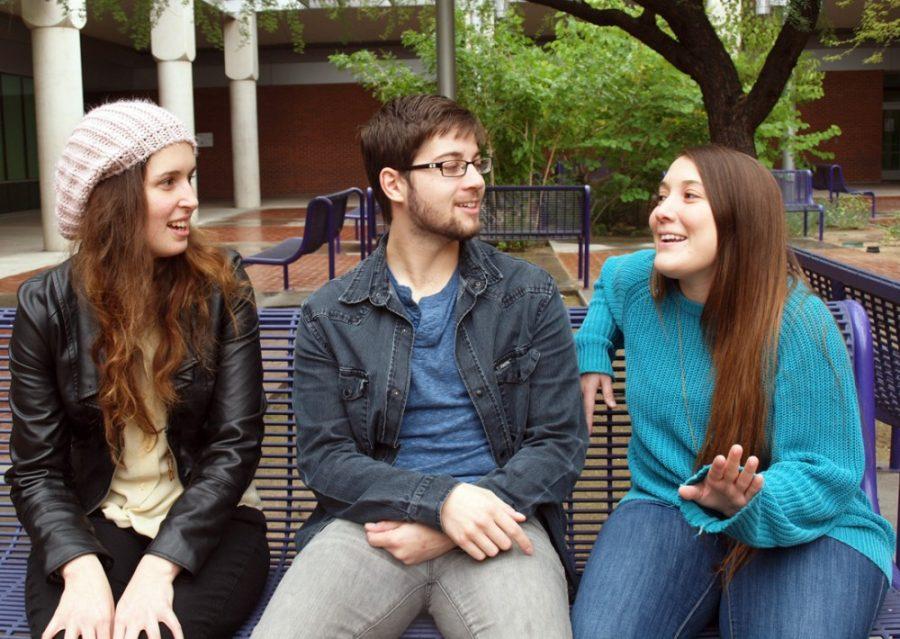Live Theatre Workshop will feature “These Watches Can’t Tell Time,” an original play written, directed and performed by three UA theatre students. Andrea Head and Simon Ridley, theatre arts seniors and Laura Bargfeld, a sophomore studying creative writing and English, described the play as “Godot”-esque. The cyclical play on sense and memory feature Head as the Woman, Ridley as the Man and Bargfeld as a silent, mask-wearing character known as Deus ex Machina, or “god from the machine.” The Daily Wildcat caught up with the three before “These Watches Can’t Tell Time” opens on Thursday.
Daily Wildcat: Tell me about your play.
Head: I was thinking about how my dad had these home movies that he had our whole family watch — that I couldn’t relate to them at all because I wasn’t in them, [since] it was of him as a kid, but I did. It makes you feel something to share in someone else’s memories. So, we made it more about maybe creating memories that aren’t yours or sharing in someone else’s memories.
Ridley: It’s the way you feel nostalgia for something you didn’t actually experience.
Bargfeld: And how the sense can really fool you.
What inspired “These Watches Can’t Tell Time”?
Ridley: I think what inspired this story is the link between sense and memory. And home movies.
Bargfeld: A lot of it grew from the way memory can be false and memory can change over time, and it doesn’t often match with reality. It grew into the whole idea of dreams also being that way. So, that’s kind of where the setting is of the whole play. It’s very much dreams and memories. There’s not a lot of realism to it.
Head: I think it also has a lot to do with relationships. The relationships we have with other people and the way we translate those relationships in our mind, the way that we think that they are and the way that they actually are if there is any such thing as “actually.” But [also] how people affect our lives and take parts of us with them when they leave.
How do the five senses come into the play?
Ridley: We landed on events in the play that connect with your sense memory, and so we have the home movies as something you can connect with visually. We add music which connects with … your audial sense.
Head: I think it transformed [from] having it be the five senses to being … the stem of what makes you feel what you feel inside.
Ridley: When you feel something, when you have a sensory experience, how does that make you internally feel?
Bargfeld: Then, it was a lot of how the senses can really fool you in memory, and that’s where it connected back. These characters are constantly getting these little sensory details in their minds, but … they’re not fully connecting it to their memories, or the sensory details are tricking them or mixing weird ideas together.
What was the collaboration process like between the three of you?
Ridley: Well, we started by getting together a lot and just sort of talking about the different characters, talking about the concept for the play and certain images we wanted to include. And then after a while, we just sort of picked up a Google Doc and wrote a rough draft between the three of us, each of us taking different sections and then working together to blend them together.
What do you hope your audience leaves feeling?
Ridley: I hope that the audience leaves with a feeling of nostalgia and a feeling of wanting more.
Bargfeld: I hope they think it’s strange but in a really delightful way. [That] is the ultimate goal.
What is the overall message of the show?
Ridley: I think the overall message of the show is that we put up imaginary barriers between us and other people we’re in a relationship with. And then, that there are these unacknowledged barriers between us and our memories and that both of those things are detrimental to our lives.
Head: Memories, boundaries, relationships.
Bargfeld: And how they hinder our personal lives and our growth.
_______________
Follow Anna Mae Ludlum on Twitter.









